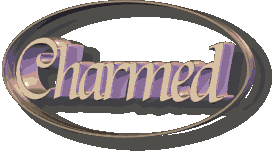|
|
| Title: Herb of the Day Basswood | |
| TrueWitchcraft > Herbs and thier Uses > Information and Uses of Herbs | Go to subcategory: |
| Author | Content |
TipsyCad147

|
|
|
Date Posted:07/28/2015 06:18 AMCopy HTML Herb of the Day BasswoodBasswood is used as a remedy for colds, flu, coughs, fever, headaches, epilepsy, indigestion, and sore throats. The inner bark contains mucilaginous materials and makes a soothing application for skin irritations, boils, wounds, sores, and burns. It is a relaxing remedy for nervous tension. Also used as a prophylactic against the development of arteriosclerosis and hypertension. Also used in the treatment of raised blood pressure associated with arteriosclerosis and nervous tension. In raised blood pressure it may be used with Hawthorn and European Mistletoe, with Hops in nervous tension and with Elder Flower in the common cold. Magickal uses: none
Properties: Diaphoretic, stomachic, anti-spasmodic, hypotensive, diuretic, anti-inflammatory, emmenagogue, astringent. Bark: emollient. Contains volatile oil (farnesol), flavonoids; hesperidin, quercitin, astralagin, tiliroside and others, mucilage (in the bract), phenolic acids and tannins. Growth: Basswood is commonly found in mixed northern hardwood forests and prefers moist but slightly drained fertile soils. Basswoods typically reach a height of between 50 to 80 feet; the trunk having a diameter of 2 to 3 feet. The flowers (Jun-Aug) of the tree are white and speckled with yellow and purple. The leaves turn russet in the autumn. The brownish-grey bark is perpendicularly, but not deeply, fissured. The cordate, serrate leaves are from 4-7 inches long have pointed tips and heart-shaped bases; clusters of yellow-white fragrant flowers (1/2 inch wide) with 5 sepals and petals and numerous stamens cohering in groups, grow on long stalks from narrow bracts, appear in June and August; they are followed by small round nutlets. The fruits or seeds are about the size and shape of a pea and are commonly called “monkey-nuts”.
Infusion: steep 1 tsp. flowers or leaves in 1 cup water. Take 1-2 cups a day. Frequent consumption of flower tea may cause heart damage.
Source: Website: The Whispering Woods |






